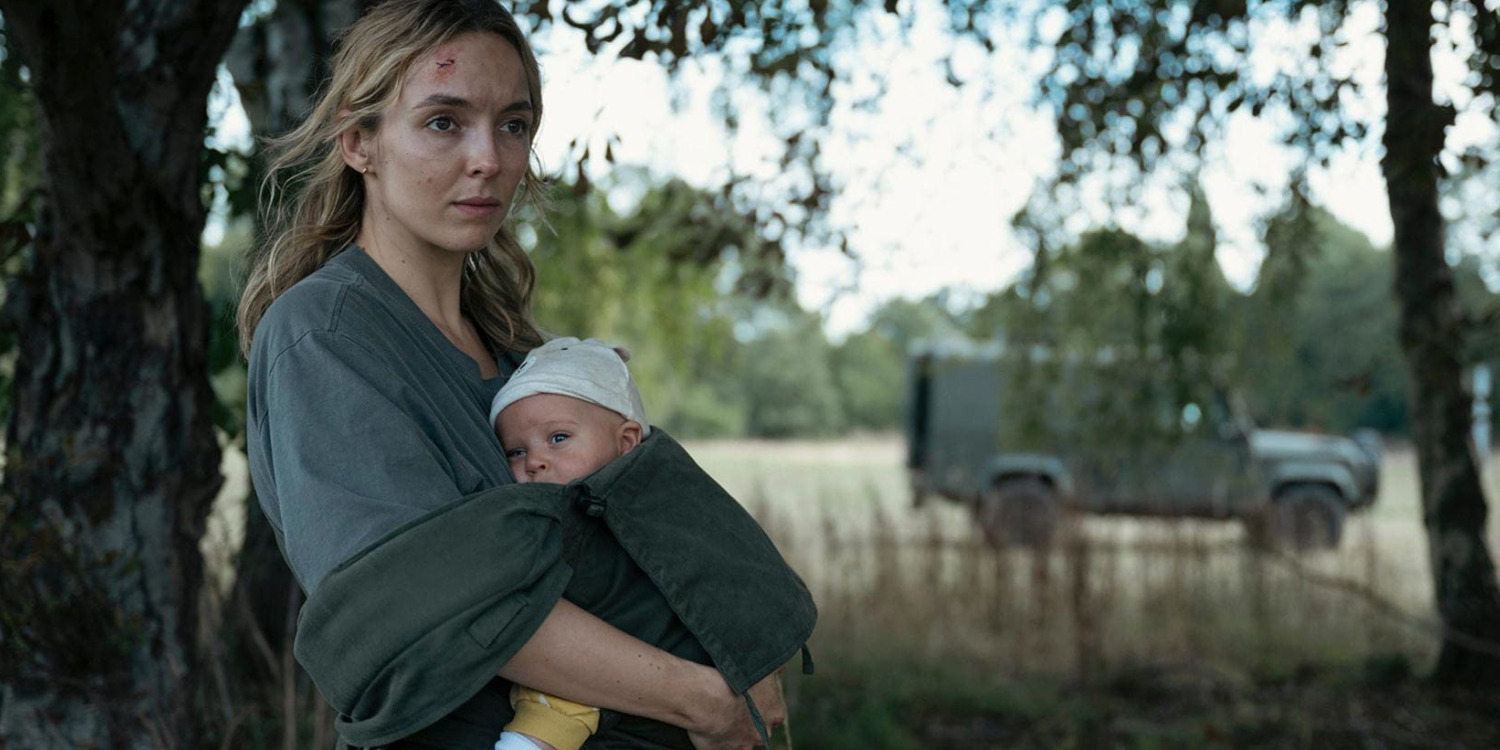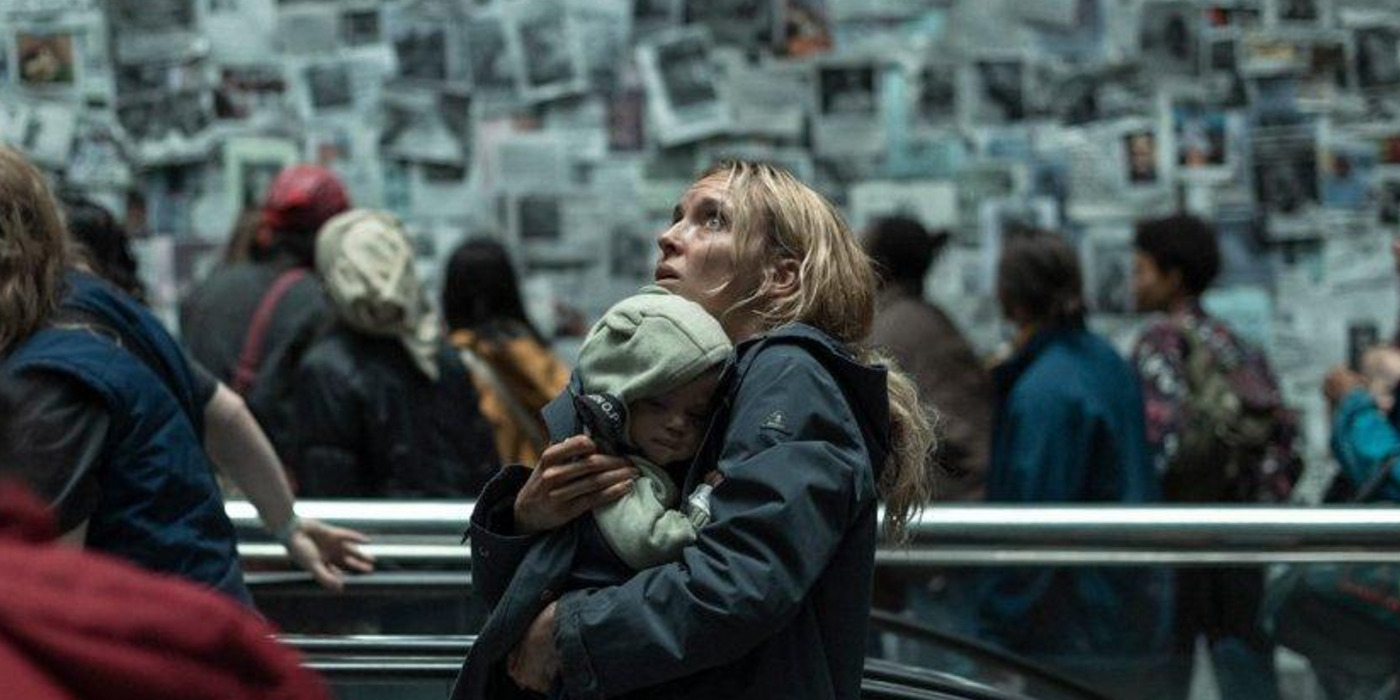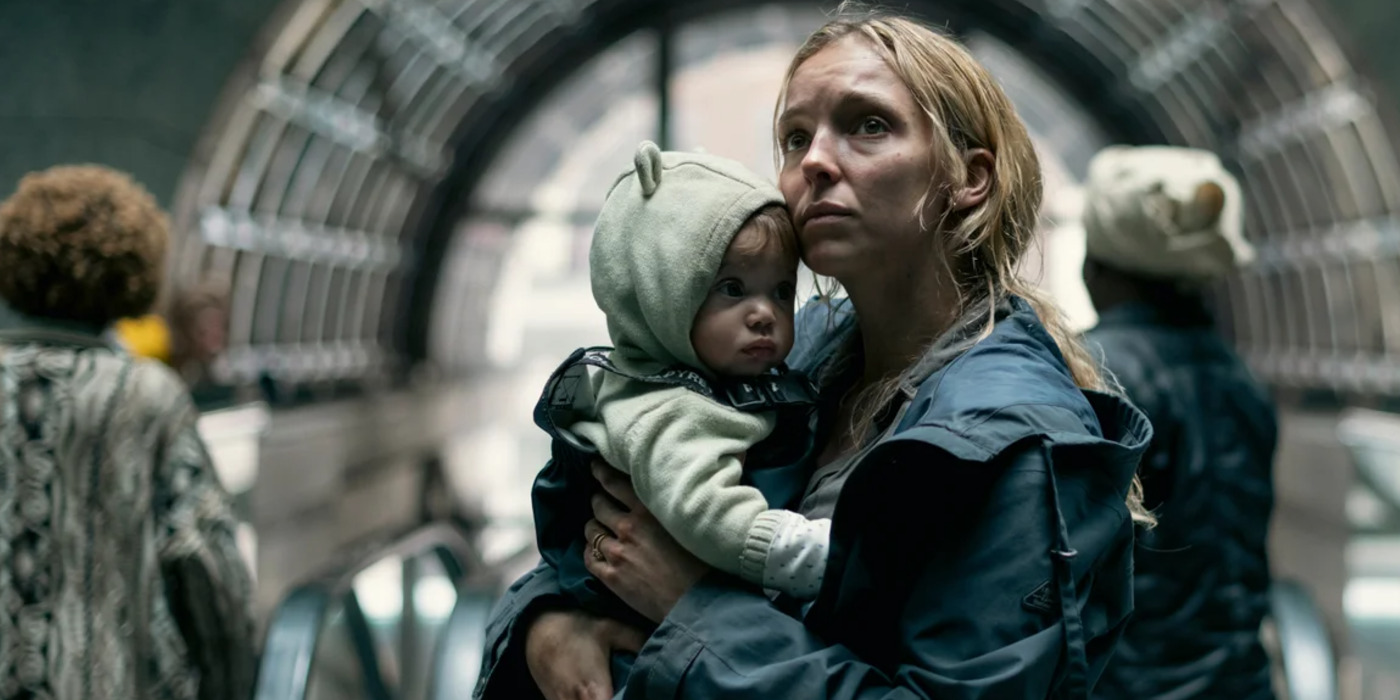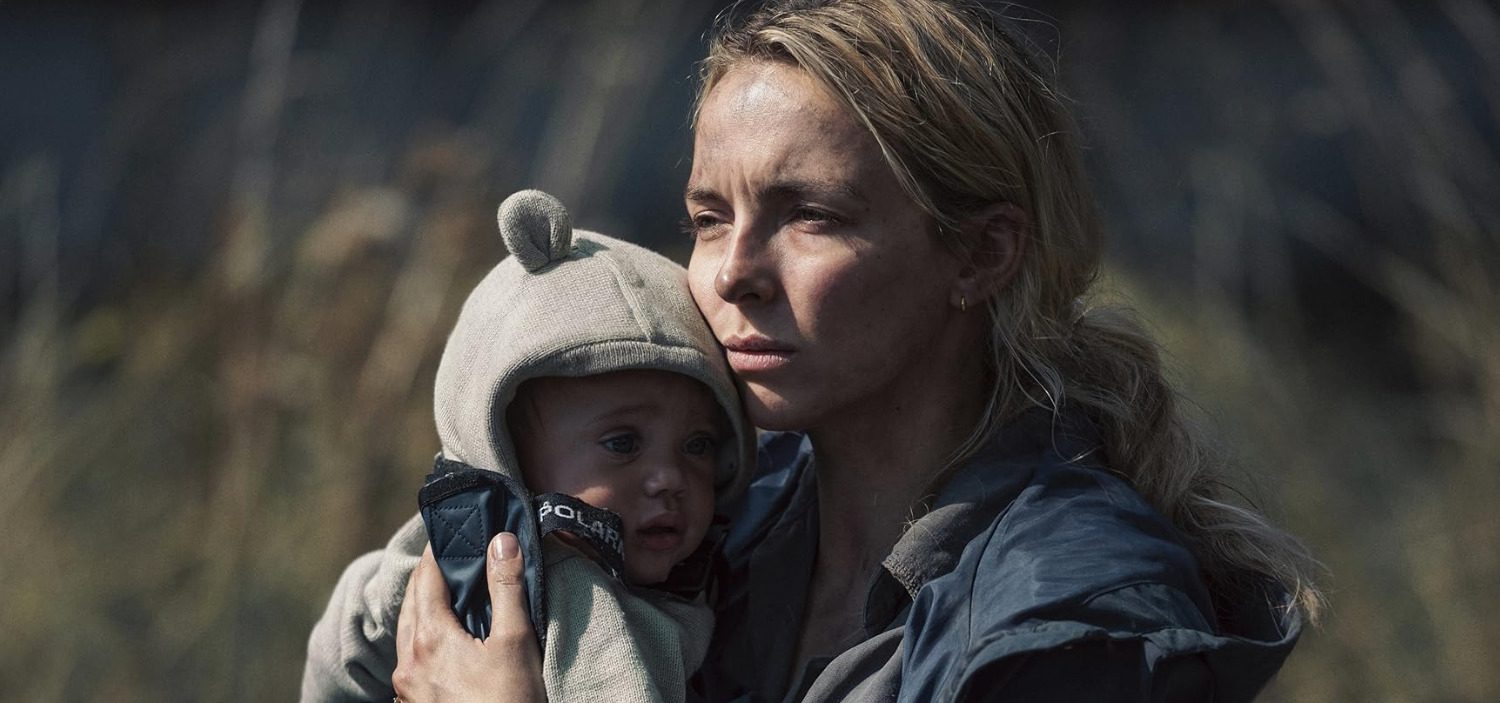Mahalia Belo’s gripping drama film ‘The End We Start From’ delves into a thought-provoking narrative about survival in the face of promised doom. The film follows a mother, simply referred to as Woman, who gives birth to her son as the city of London yields to an all-consuming flood. Consequently, as an environmental crisis makes her and her newborn, ZEB’s home inhabitable, the duo must embark on a journey to secure their survival. Despite finding its inciting premise within a disaster, the story focuses less on the disaster’s big picture itself and more on how it affects the individual and interpersonal lives of many.
In doing so, the film delivers a poignant tale about humanity’s relationship to their home and one another—particularly one between a mother and her child. As a result, the film carries fleshed-out themes of motherhood and human survival within a world ravaged by the climate crisis. Inevitably, Woman and ZEB’s narrative ends up holding a nuanced connection to realism.
The End We Start From is Based on Megan Hunter’s Novel
‘The End We Start From’ is an on-screen adaptation of Megan Hunter’s 2017 eponymous novel wherein the author presents a fictional story told in uniquely stylized prose. The story revolves around a new mother and her son who find themselves in the midst of an environmental disaster. The central elements within this premise—the characters and the floods that ravage London—are fictitious, originating from Hunter’s imagination. The novel pitches the idea of a woman giving birth simultaneously to a catastrophic flood. As the two events work in tandem, they pen a story that explores and examines some of the most basic cogs of existence at work.

Notably, the story pays significant attention to the theme of motherhood. Even though the characters within the novel—operating only as Woman and Z—are fictitious, their varied experiences shape the story’s sense of realism. Although Hunter didn’t base the characters after herself and her two kids, strands of her own experiences inevitably bled into the characters. As a result, the author draws upon her own lived experiences of early motherhood to infuse the Woman’s narrative with authenticity while still maintaining a level of separation from the novel’s protagonist.
Similarly, the book’s depiction of the central environmental crisis isn’t based on a particular event from reality. Instead, it’s an imagined potential outcome of the ongoing climate crisis. Hunter leaves much of the disaster up and open to the reader’s imagination while diving deep into the individual and communal emotional reactions to the floods of cataclysmic levels. Consequently, even though the book deals with a fictional disaster, it taps into the authenticity of the sentiments attached to the same.

Thus, the book retains an inherent connection with reality that surpasses its fictional origins. Directed Mahalia Belo’s film, with a screenplay written by Alice Birch, manages to authentically translate this balance between fiction and reality to the screen. Therefore, even though Hunter’s book and the film are distinct in their mediums, the latter remains a faithful adaptation of the story.
The End We Start From Explores Themes That Universally Resonate
Following in the footsteps of Megan Hunter’s novel, Mahalia Belo’s ‘The End We Start From’ mines its instrumental sense of realism through its central themes: the climate crisis and motherhood. At their core, both concepts connect back to the story of human survival. As such, instead of focusing on the cinematic horror and thrill of the central environmental crisis, the film shifts attention to the exploration of emotions born from this instance.

This results in an exceptional depiction of the flood through CGI and special effects that pave the way for the emotional center of the narrative through in-depth explorations of fear, hope, loss, and more, all in connection to friends and family. Jodie Comer, the lead actress in the film, discussed this in a conversation with Collider. She said, “It was (more) about, like, if we were to go through this, how does that fracture and put stress on our relationships? How do we move forward when the person who we love can’t move forward with us?” All these really difficult questions that, for me, I found really emotive because they felt very, very real, and I didn’t feel like I’d seen that in a film before that depicts climate change.”
Likewise, the on-screen story’s depiction of motherhood through Woman and Zed’s relationship retains a significant touch of authenticity. One of the ways in which this authenticity originated came from the heavy female participation in the creative process behind the project. From the author or the source material to the director, screenwriter, and many others, many of the notable additions to the team were able to infuse their own experiences into the project. As such, the film remains dedicated to providing a truthful and nuanced depiction of what motherhood can be like. Ultimately, this contributes to authenticating the fictionalized tale.
Read More: Best Disaster Movies on Netflix


You must be logged in to post a comment.